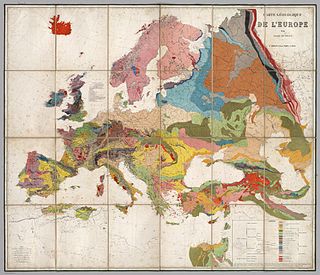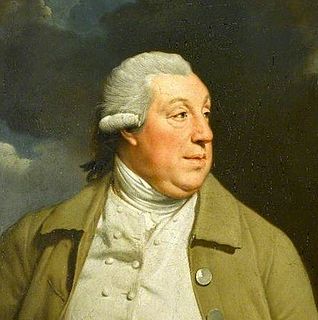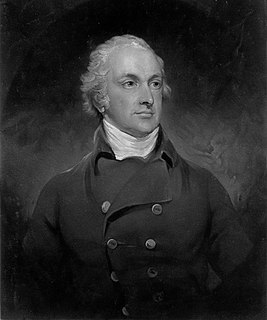
Thomas Pelham, 2nd Earl of Chichester PC, PC (Ire), FRS, styled The Honourable Thomas Pelham from 1768 until 1783, The Right Honourable Thomas Pelham from 1783 to 1801, and then known as Lord Pelham until 1805, was a British Whig politician. He notably held office as Home Secretary under Henry Addington from 1801 to 1803.

Tokugawa Ienari was the eleventh and longest-serving shōgun of the Tokugawa shogunate of Japan who held office from 1787 to 1837. He was a great-grandson of the eighth shōgun Tokugawa Yoshimune through his son Munetada (1721–1764), head of the Hitotsubashi branch of the family, and his grandson Harusada (1751–1827).

Henry Somerset, 5th Duke of Beaufort KG was an English courtier and politician. He was the only son of Charles Noel Somerset, 4th Duke of Beaufort and his wife, Elizabeth Berkeley. Styled Marquess of Worcester from 1746, at his father's death on 28 October 1756, he succeeded him as 5th Duke of Beaufort, 7th Marquess of Worcester, 11th Earl of Worcester, and 13th Baron Herbert.

General Lord Robert Edward Henry Somerset was a British soldier who fought during the Peninsular War and the War of the Seventh Coalition.

Henry Charles Somerset, 6th Duke of Beaufort, KG, styled Marquess of Worcester until 1803, was a British politician.

Thomas Thynne, 2nd Marquess of Bath KG, styled Viscount Weymouth from 1789 until 1796, was a British peer.
The Dean of the United States Senate is an informal term for the Senator with the longest continuous service, regardless of party affiliation. This is not an official position within the Senate, although customarily the longest-serving member of the majority party serves as President pro tempore.
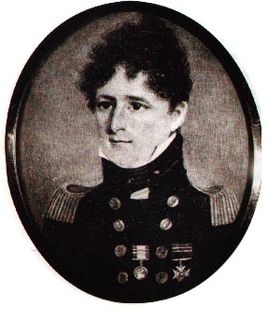
Admiral of the Fleet Sir Francis William Austen, was a Royal Navy officer. As commanding officer of the sloop HMS Peterel, he captured some 40 ships, was present at the capture of a French squadron, and led an operation when the French brig Ligurienne was captured and two others were driven ashore off Marseille during the French Revolutionary Wars.
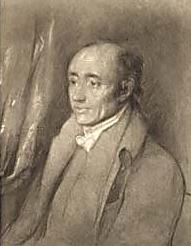
Charles William Henry Montagu-Scott, 4th Duke of Buccleuch and 6th Duke of Queensberry, KT, styled Earl of Dalkeith until 1812, was a British landowner, amateur cricketer and Tory politician.
William Jacob was an English merchant, shipowner, scientist, parliamentarian, public official and advocate for expanded British trade. In his later life he was a significant and effective advocate for the repeal of the Corn Laws.
Edward Bootle-Wilbraham, 1st Baron Skelmersdale, was a British landowner and politician.
Jonas Kendall was a U.S. Representative from Massachusetts, father of Joseph Gowing Kendall.

General Henry Edward Fox was a British Army general. He also served brief spells as Governor of Minorca and Governor of Gibraltar.

Admiral George Stewart, 8th Earl of Galloway, styled Lord Garlies between 1773 and 1806, was a British naval commander and politician.
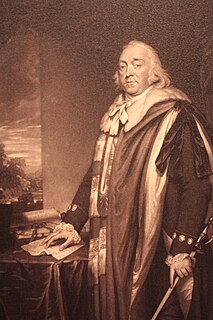
Charles Marsham, 1st Earl of Romney, known as The Lord Romney between 1793 and 1801, was a British politician who sat in the House of Commons from 1768 to 1790, inherited his peerage in 1793 and was created Earl of Romney in 1801.
Thomas Falconer (1772–1839) was an English clergyman and classical scholar.

General Sir David Dundas was a British Army officer who fought in the Seven Years' War and French Revolutionary Wars, wrote important texts on the Principles of Military Movements and then served as Commander-in-Chief of the Forces from 1809 to 1811.
Charles Edmund Wilkinson (1801–1870) was a British army officer who rose to the rank of Major-General and served as acting Governor of British Ceylon.
